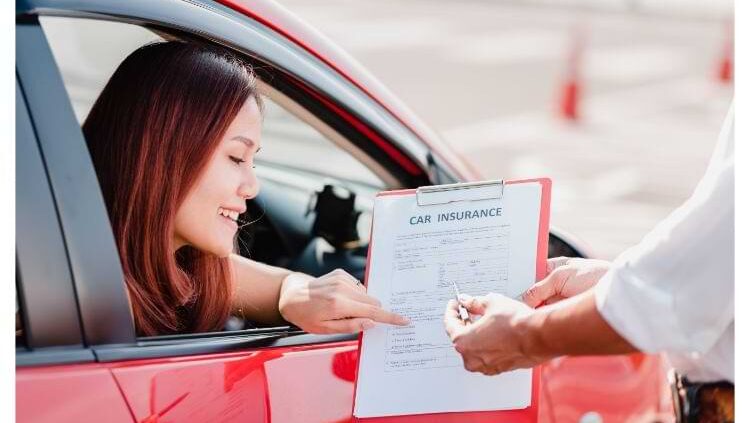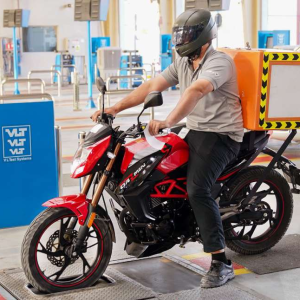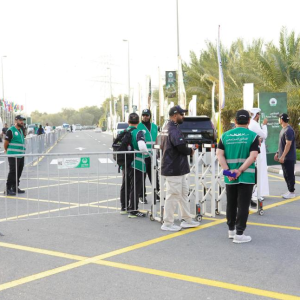Dubai, a city known for its luxury and strict traffic rules, often raises the question: Can a police car issue speeding fines? This topic is increasingly relevant as Dubai’s authorities continuously enhance road safety measures. Let’s explore the role of Dubai Police cars in issuing fines, the process, and how drivers can stay compliant with traffic laws.
Understanding Traffic Enforcement in Dubai
Dubai’s Roads and Transport Authority (RTA) works alongside the Dubai Police to maintain a safe and efficient traffic system. Speeding is one of the most common violations, and authorities take it seriously. Enforcement tools include fixed radar cameras, mobile speed cameras, and yes, police patrol cars equipped with advanced technology.
Dubai Police vehicles can issue speeding fines directly, but not always in the conventional way drivers might imagine. The advanced equipment installed in patrol cars, such as speed radars and Automatic Number Plate Recognition (ANPR) systems, allows officers to monitor and document violations in real time.

How Dubai Police Cars Monitor Speeding
Dubai Police cars are equipped with cutting-edge technology to detect and record speeding violations. Here’s how they operate:
- ANPR Systems
Automatic Number Plate Recognition (ANPR) systems in police cars scan the number plates of vehicles on the move. These systems can immediately flag violators who exceed speed limits, and the information is transmitted to a central database for processing fines. - Speed Radar Guns
In addition to cameras, many patrol cars carry portable radar guns. These devices measure the speed of passing vehicles and help officers determine whether drivers are violating limits. - Direct Intervention
Police officers in patrol cars have the authority to pull over speeding drivers and issue fines on the spot. This approach is less common but can occur in cases of extreme speeding or dangerous driving.
The Role of Smart Surveillance Systems
Dubai’s government has heavily invested in smart traffic management systems. These technologies work alongside police cars to ensure seamless traffic enforcement. For example:

- AI-Driven Monitoring: AI systems process data from various sources, including patrol cars and fixed radars, to identify traffic rule violations more efficiently.
- Integrated Traffic Control: Violations captured by police cars are logged into a unified system that also includes footage from road surveillance cameras.
Common Misconceptions
- Do All Fines Require a Stop by the Police?
No. Most speeding fines in Dubai are issued automatically via radar systems, including those integrated into police cars. Drivers often receive notifications through SMS or the RTA’s official app. - Can I Challenge a Fine?
Yes. If you believe a fine was issued incorrectly, Dubai provides a straightforward appeals process. Drivers can visit the traffic department or use the Dubai Police app to file a dispute. - Are Police Cars Used as Decoys?
Sometimes, stationary police cars are strategically parked to act as a deterrent. These vehicles might not issue fines but serve as reminders for drivers to adhere to speed limits.
Tips for Avoiding Speeding Fines
Staying compliant with Dubai’s traffic laws not only saves money but also ensures road safety. Here are some key tips:
- Stay Informed
Keep track of speed limits on different roads. For example, highways often have a limit of 120 km/h, while urban roads may vary between 60-80 km/h. - Use GPS and Traffic Apps
Applications like Google Maps and Waze often provide real-time updates on speed limits and the locations of radar cameras. - Monitor Your Driving
Install a speedometer app or ensure your vehicle’s speedometer is accurate. - Follow Notifications
Regularly check the RTA or Dubai Police apps for updates on any fines or new traffic regulations.
Why Speed Limits Are Crucial in Dubai
Dubai’s unique road infrastructure, featuring wide highways and urban streets, demands strict adherence to speed limits. High-speed violations can lead to severe penalties, including:
- Hefty Fines: Speeding fines range from AED 300 to AED 3,000, depending on the severity of the violation.
- Black Points: Accumulating black points can result in license suspension.
- Vehicle Impoundment: For excessive speeding, police may seize vehicles temporarily.
These measures aim to reduce accidents and ensure the safety of all road users.
Official Channels to Pay or Check Fines
If you’ve received a speeding fine, Dubai offers several convenient methods to settle it:
- RTA Website and App
Access your fine details and pay securely through the Roads and Transport Authority’s official website or mobile app. - Dubai Police App
The Dubai Police app allows users to check and pay fines while providing other traffic-related services. Visit Dubai Police for more information. - Service Centers
Traditional payment methods are still available at RTA customer service centers and traffic department offices.
Conclusion
In Dubai, police cars are more than just patrol vehicles; they are mobile enforcement units capable of issuing fines for speeding violations. While the city’s smart traffic systems handle a significant portion of monitoring, patrol cars play an essential role in keeping roads safe. By understanding the mechanisms and staying vigilant, drivers can avoid fines and contribute to a safer driving environment.
You can also read about Top Car Rental Tips in Dubai.













